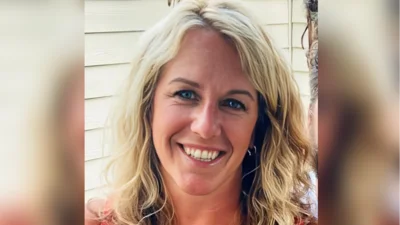Although District 86 school board member Kathleen Hirsman has boasted of her experience negotiating with unions, questions are now being raised about whether teachers union support for her campaign may have compromised her position.
Hirsman, a 30-year resident of Clarendon Hills, is a law professor at Loyola University Chicago School of Law, where she earned her law degree, according to a 2015 school board candidate interview in The Daily Herald.
"For 25 years, as a school attorney, I counseled school boards in board governance and best practices in school administration," she said told the Daily Herald, noting that she "negotiated a number of collective bargaining agreements between boards of education and professional and support personnel" during her career.

Kathleen Hirsman, District 86 school board member.
According to a press release from Edward A. Corcoran, president of the Citizens for Clarendon Hills neighborhood association, Hirsman was “a union-backed D86 candidate” who was leading negotiations with the Hinsdale High School Teachers’ Association.
That union pushed for a referendum on the Nov. 6 ballot that would have created a fund of almost $30 million for teacher pay increases, Corcoran wrote.
“Children and even most adults do not understand the budget manipulation and tax increase that solely benefits the overstaffing of the teacher's union,” he said in the release. He added that the pool of additional funds would not address needed reforms to teachers’ benefits and what he called “outdated work rules.”
In the Daily Herald interview, Hirsman said, “There should be no need to cut professional staff… and educational programs and resources that directly benefit students.”
Those are exactly the programs the school board threatened to cut after the referendum failed. Corcoran said in the C4CH press release that the board pledged to cut football, swimming and other popular activities following the unsuccessful referendum.
Lennie Jarratt, project manager for the Center for Transforming Education at the Heartland Institute, said in a phone interview with the DuPage Policy Journal that such tactics are becoming all too frequent in Illinois school-funding debates.
"This is something that happens in a ton of school districts around Illinois,” Jarratt said. “It’s ridiculous.”
Jarratt offered a simple prescription to address any conflicts of interest that could arise from union-supported board members handling contract negotiations with the Hinsdale High School Teachers Association.
“They should be recusing themselves from negotiations,” he said. “They should be recusing themselves from votes, for that matter. But most of them don’t bother.”
As for the charges from C4CH that the Hinsdale board has politicized students by threatening to cut activities, Jarratt said it might constitute electioneering, “which is illegal,” and should be investigated.
“This is one of the typical tactics,” he said. “They do everything they can to hold the kids hostage so the parents give (schools) more money. It’s far too common and shouldn’t be allowed.”
Jarratt recommended holding the District 86 school board accountable for the strategies they have used to weaponize students in the funding battle, including offering National Honor Society credits to students who campaign for the referendum and exposing students to posters and other pro-referendum messages during school hours.
“That should be considered electioneering,” he said. “Someone should do a FOIA [Freedome of Information Act] into the school and look at some of their communications. It’s absolutely disgusting. It’s disgraceful, really, that any adult would even do that.”






 Alerts Sign-up
Alerts Sign-up